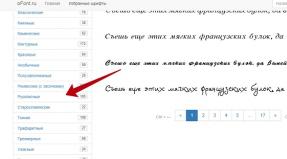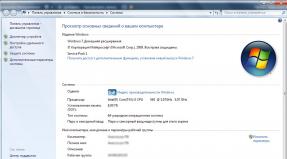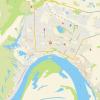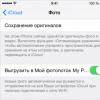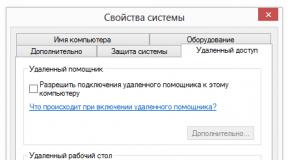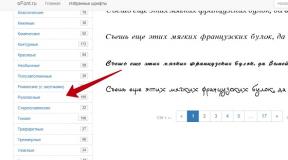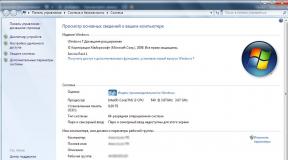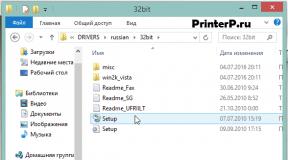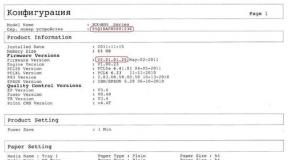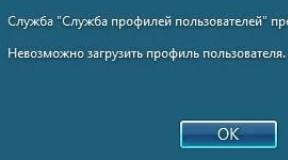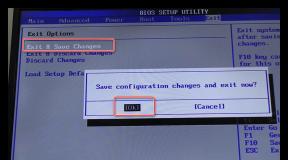Allowing changes to part of a protected document. Solving the problem: MS Word document cannot be edited Adding protection and marking parts in which changes are allowed
You can mark a document as read-only, but still allow changes to parts of it.
These unrestricted portions can be made available to anyone who opens the document, or permission can be granted to individual users to edit those portions of the document.
Protect the document and mark parts where changes are allowed
When you open a protected document in Word, your ability to edit it is determined by whether or not the owner of the document has permission to make changes to a specific part of it.
In the task area Restrict Editing buttons are displayed to navigate to areas of the document in which the user is allowed to change.

If you don't have permission to change any part of the document, when you click the buttons in the task pane Restrict Editing Word will prevent editing and display the message “Word has completed searching the document.”
Finding parts that can be edited
If you close the task pane Restrict Editing and try to make a change that you do not have permission to make, the following message will appear in the status bar:
additional information

Unlocking a protected document
To remove all protection from a document, you may need to use the password that was applied to the document. You may need to be listed as the authenticated owner for the document.

Making changes to a document with restrictions
When opening a protected document in Microsoft Word 2010, the possibility of changes is determined by the presence or absence of permission granted by the owner of the document to make changes to a specific part of it.
The task pane displays buttons to navigate to areas of the document in which the user is allowed to change.

If you don't have permission to change any part of the document, when you click the buttons in the task pane Limit formatting and editing Word will prevent editing and display the message "Word has finished searching the document."
If you close the task pane and try to make a change that you do not have permission to make, the following message appears in the status bar:
This change is not allowed because the selection is locked.
To return to the task pane and find the fragment that you are allowed to change, do the following:

additional information
Adding protection and marking parts where changes are allowed
Unlocking a protected document
Permission to make changes to a document is not the same as permission to remove protection from a document. Even if everyone is allowed to change the contents of a document, only authorized owners and users who enter the correct password can remove the protection.
Making changes to a document with restrictions
When someone opens a protected document in Microsoft Office Word 2007, their ability to make changes is determined by whether that user has permission to edit that particular portion. When you open a document in the task pane Limit formatting and editing buttons are displayed to navigate to areas of the document that you can edit. If permission to edit parts of the document is granted everyone, then anyone with the document open can navigate to these areas by clicking Find the next area I can edit.

If permission to edit parts of a document is limited to specific users, no one else will be able to access those areas. For everyone else, when clicking buttons in the task area Limit formatting and editing Office Word 2007 will prevent editing and display the message "The search in the document has completed."
Open the Restrict Formatting and Editing task pane
If you close the task pane and try to make a change that you do not have permission to make, the following message appears on the Word 2007 status bar:
This change is not allowed because the selection is locked.
To return to the task pane and find the fragment that you are allowed to change, do the following:
additional information
Note: This page has been automatically translated and may contain inaccuracies and grammatical errors. It is important to us that this article is useful to you. Was the information useful? For convenience also (in English).
I got a strange error message on one of my sites after switching to new hosting.
What I found as solutions and didn't work for me:
I checked all the prefix things, since my perfix is not wp_ so everything is exactly in users_meta , also in wp_options .
I even tried to insert a new admin user with php code, I got the same error.
I also tried disabling all plugins and resetting settings to default, but nothing worked.
The server I switched to has ssl so its an https connection which is covered by updates to all urls within the db.
Another problem is when I logged in wp-admin it shows the same message
Sorry, you cannot edit this item.
In the interface I see a fully functional wp-bar with all the edit page/Create New post/page/etc buttons. But when I click it shows the same error as above.
Any suggestions?
2 answers
If you are trying to edit categories/custom taxonomies and you are getting this error, you should do the following.
Check the wp_term_taxonomy table for Term IDs that are associated with more than one taxonomy ID. These entries are the main cause of the error. The following query will help you find this.
SELECT term_id, COUNT(term_id) FROM wp_term_taxonomy GROUP BY term_id HAVING COUNT(term_id) > 1;
Check the taxonomy column in the wp_term_taxonomy table that you want to keep and remove the other taxonomy entry. Please see #3 before deleting.
You must also remove entries from the wp_term_relationships table for the corresponding term_taxonomy_id that you have in the wp_term_taxonomy table.
Advice. Create a database backup before running any DELETE queries on your database.
Deactivate your entire plugin and activate them one by one, this will help find the culprit. if you can't get to the control panel, use FTP and rename the plugins directory.
Another solution
I found another solution to edit wp-includes/capabilities.php
Replace this code
Function current_user_can($capability) ( $current_user = wp_get_current_user(); if (empty($current_user)) return false; $args = array_slice(func_get_args(), 1); $args = array_merge(array($capability), $args ); return call_user_func_array(array($current_user, "has_cap"), $args )
Function current_user_can($capability) ( $current_user = wp_get_current_user(); if (empty($current_user)) return false; if (is_admin()) return true; $args = array_slice(func_get_args(), 1); $args = array_merge (array($capability), $args); return call_user_func_array(array($current_user, "has_cap"), $args);
If this works you will still have to find a suitable solution as capabilities.php - this is the main file and any update will override your code.
Users who frequently work in Microsoft Word may encounter certain problems from time to time. We have already talked about the solution to many of them, but we are still far from considering and finding a solution to each of them.
This article will talk about the problems that arise when trying to open a “foreign” file, that is, one that was not created by you or was downloaded from the Internet. In many cases, such files are readable but not editable, for two reasons.
The first reason is the limited functionality mode (compatibility issue). It turns on when you try to open a document created in an older version of Word than the one used on a particular computer. The second reason is the inability to edit the document due to the fact that it is protected.
We have already talked about solving the compatibility problem (limited functionality) (link below). If this is your case, our instructions will help you open such a document for editing. In this article we will look at the second reason and answer the question of why the Word document cannot be edited, and we will also tell you how to fix it.

Prohibition on editing
In a Word document that cannot be edited, almost all elements of the Quick Access Toolbar are inactive, in all tabs. Such a document can be viewed, you can search it by content, but when you try to change something in it, a notification appears "Limit Editing".



If the editing ban is set to “formal”, that is, the document is not protected by a password, then you can try to disable this ban. Otherwise, only the user who installed it or the group administrator (if the file was created on the local network) can open the editing feature.
Note: Notification "Document Protection" also appears in the file details.

Note: "Document Protection" installed in the tab "Review", designed to review, compare, edit, and collaborate on documents.
1. In the window "Limit Editing" click the button "Disable protection".

2. In the section "Editing restrictions" uncheck the “Allow only the specified method for editing the document” option or select the required option in the drop-down menu of the button located under this item.

3. All elements in all tabs on the Quick Access Toolbar will become active, therefore, the document can be edited.

4. Close the panel "Limit Editing", make the necessary changes to the document and save it by selecting from the menu "File" team "Save as". Specify the file name and the path to the folder to save it.

Let us repeat, removing editing protection is only possible if the document you are working with is not password protected and is not protected by a third-party user under his account. If we are talking about cases where a password is set on a file or on the ability to edit it, without knowing it, it is impossible to make changes, or even not be able to open a text document at all.
Note: Material on how to remove password protection from a Word file is expected on our website in the near future.
If you yourself want to protect a document by limiting the ability to edit it, or even completely prohibit it from being opened by third-party users, we recommend reading our material on this topic.
Removing the editing ban in document properties
It also happens that editing protection is set not in Microsoft Word itself, but in the file properties. Often, removing such a restriction is much easier. Before you begin the steps described below, make sure that you have administrator rights on your computer.
1. Go to the folder with the file that you cannot edit.

2. Open the properties of this document (right click - "Properties").

3. Go to the tab "Safety".

4. Press the button "Change".
5. In the lower window in the column "Allow" check the box next to the item "Full access".

6. Click "Apply" then click "OK".
7. Open the document, make the necessary changes, save it.

Note: This method, like the previous one, does not work for files protected by a password or by third-party users.
That’s all, now you know the answer to the question of why a Word document cannot be edited and how, in some cases, you can still get access to editing such documents.
By default, a user with publisher permissions can edit any page or post. However, sometimes you will want to limit his powers and give him access only to certain pages.
In this tutorial, we'll show you how to restrict editors so that they can only edit a certain number of pages.
If you've never installed WordPress, discover et
But let's get back to why we are here.
Why can't publishers edit all pages?
WordPress has robust features and systemquite flexiblepermission management. This allows you to add users by assigning them different ones and assigning them to roles other permissions.
Among one of these user roles we find the role " Publisher" Users with user role Publisher You can edit all articles and pages on your site.
Many WordPress websites are structured in such a way that publishers are typically responsible for the content of blog posts. Pages are typically static pages that don't change often and serve to display information such as , this, and more.
If you don't want publishers to edit pages or only edit certain pages, you will need to change the user role" Publisher On your website.
That said, let's look at how to allow WordPress editors to edit only certain pages.
1. How to Edit the Publisher User Role in WordPress
The first thing you need to do is install and activate the plugin" Advanced Manager Features ».
After activating the plugin you must visit the page " Users > Capacities To configure plugin settings. 
Then you need to select the user role Publisher In this district Select a role to view/edit"And click on the "Continue" button.
The plugin will load the user role Publisher And view all permissions and permissions for the role. 
Above you will notice options for editing and deleting posts and pages.
You must uncheck " Edit others"AND" Delete others For pages. Removing these settings will prevent editors from editing or deleting pages created by other users.
Publishers will no longer be able to edit pages published by other users.
We invite you to open
To prevent publishers from editing pages, you must assign an admin user as the author of those pages.
You can do this by going to Pages > All Pages Click the checkbox to select all pages. After that you have to select " Modifier In the drop down menu Grouped Actions"Then click the " Apply». 
This will load an edit window where you can edit the author of all selected pages. As an administrator, you can assign yourself as the author of all pages or another user with the administrator role. 
Don't forget to click the update button to save your changes.
If you have more than 20 pages, you may need to click the next button to download the next 20 pages and repeat the copyright change process.
Step 2: Allow editors to edit specific pages
Until now, you have prevented publishers from editing pages on your WordPress website. If you wish, you can allow editors to edit certain pages.
Simply edit the page where you want the editor to make changes. Then click on the button Screen Options In the top right corner of the screen and make sure the checkbox next to the option " Author Checking. 
Now scroll down to the author mark and select the user you want to assign the page issue to.
Also discover some themes and premium WordPress plugins
You can use other WordPress plugins to give a modern look and optimize the management of your blog or website.
We offer you several premium WordPress plugins that will help you do this.
1. Final form
Ultimate Form Builder is a premium WordPress plugin that allows you to create an unlimited number of responsive forms. It has a drag"n"drop builder that can create any type of form (contact, survey, offer, information, etc.).
This plugin is easy to use. You can create, customize and create beautiful forms, apply existing templates to existing forms for design and use them on your website in no time.
You will also be able to receive form data via email and save it in a database; which can be exported in CSV format for use through your site's dashboard.
Although it has almost the same features as the previous one, what stands out is the fact that it only supports two languages at the moment, including English and Czech. But it is not surprising that in the future iteration we will find support for many other languages. In the meantime, feel free to check out his demo.
Download |
